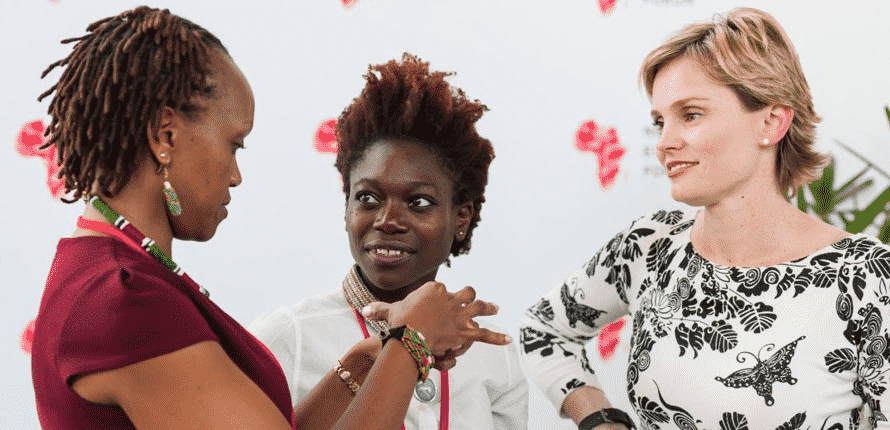By Éliane Ubalijoro, Professor of Practice at McGill University and Executive Director, C.L.E.A.R
I am a molecular geneticist and a mother of a 13 year old daughter. My mother was a math teacher before starting her family. My daughter and I have both benefited from encouragement early in our lives by parents who believed in the importance of exposure to Science, Technology, Engineering and Mathematics (STEM) and recognizing the possibility of being a scientist at home. Bridging the gap for women in science and technology requires support at home, as school, at work and the state level.
“A state that does not educate and train women is like a man who only trains his right arm.”
Equal access to opportunities in STEM for women translates in bringing more of the neglected half of the global population to innovate for a greater good. When women are absent from the innovation space, their lived experiences, challenges and dreams are likely to be excluded in the design of research, products and services that matter most to them. According to Jack Ma “”If you want your company to be successful; if you want your company to operate with wisdom, with care, then women are the best”.
In the volatile, uncertain and complex world we live in, we need women’s participation more than ever. We need ethical, creative and compassionate leadership able to create spaces for all of us to fail, learn and move forward wiser more resilient as we work discover, prototype and bring to market services and products critical to growing Africa sustainably for the 21st century. We need to take to the “neglected” out of tropical diseases, so medicines can be accessed to a growing population that will bring into the world half the births expected on the planet between now and 2050.
Empowering girls through education in Africa “could result in 1.8 billion people less than the U.N. median variant suggests by 2100” diminishing pressure on the planet’s resources and significantly reducing carbon emissions. “In the United States, for example, the carbon emissions of a single person is about 20 times the reductions that each of us might be expected to achieve by being more conscious of our carbon footprint, switching to electric cars and using LED lightbulbs”. Africa’s carbon emissions per capita in 2008 were 6.6% of those in North America. As Africa grows a strong and vibrant middle class, it is equally important to ensure that sustainable economic development benefits all and that population pressure does not take away the benefits of technological leapfrogging and access to homegrown innovations that improve local livelihoods. Our fragile ecological ecosystem has to be preserved as we grow the continent’s innovation ecosystem. What is needed is the promotion of a regenerative economy like the circular economy. According to the Ellen MacArthur foundation, this requires designing out waste and pollution, keeping products and materials in use for as long as possible and ensuring continuous regeneration of natural systems. This will require visionary leadership backed by strong STEM backed knowledge economies.
Africa has 60% of the world’s uncultivated arable land and 26% of global plant biodiversity. “Female share of the agricultural labour force [in Africa] is the highest in the world”. Small holder farmers produce 80% of the food grown on the continent. Harnessing Africa’s food production capacity sustainably could turn the continent’s 35 billion USD food import bill into significant local income and improved livelihood. Connecting the market women driving trade in rural and urban areas to the technological and financial tools that meet their needs is important to the flow of goods and money to empower families. The 2016 African Human Development Report states that gender inequality is costing Sub Saharan Africa around a 100 billion USD a year.
Innovation adapted to the needs of rural and urban populations allows access to education, energy and economic opportunity to be a right for all. Protecting forests, oceans and wildlife while producing affordable safe nutritious food, clean water and sustainable energy sources require innovative solutions. Respect of the planet while we create these enabling conditions for all our descendants to thrive requires harnessing STEM to address climate change, pollution driven economic growth, depletion of biodiversity and proliferation of diseases that still affect billions of people.
Canada’s Prime Minister Justin Trudeau recently cited the fact “that increasing the share of women in leadership positions from 0% to 30% translates into a 15% boost to profitability”.
Women and men’s collective leadership and scientific undertakings will be critical to designing, piloting and scaling African circular economies that respect the environment, mitigate climate change, create continent wide interconnected economic prosperity that promote peace and safe circulation of people, goods, wildlife and knowledge. Bridging the gap for women in science and technology is essential to making these dream not only a possibility but a certainty!
